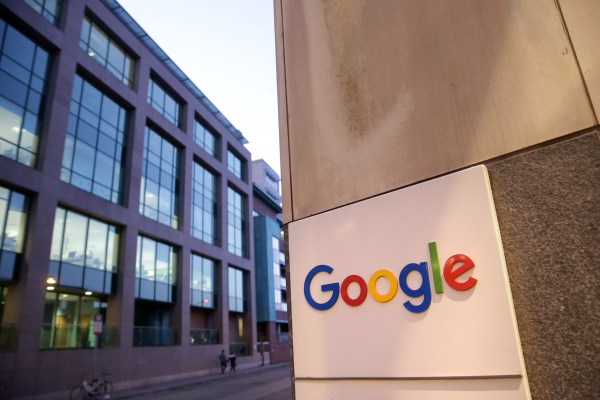Google has submitted details to the European Commission of how it intends to amend its price comparison service, Google Shopping, to comply with an antitrust decision earlier this summer. The proposals were submitted yesterday.
A spokesperson for the Commission confirmed it had received information from Google pertaining to complying with the ruling.
The company has until the end of September to end its censured conduct or risk a regime of additional daily fines that would be backdated to the date of non-compliance.
The Commission has not published Google’s proposals for complying with the ruling — and TechCrunch understands there is no official intention to make the proposals public.
“It is Google’s sole responsibility to ensure compliance with the Commission antitrust decision. The Commission’s role is to monitor Google’s compliance. In this context the Commission can confirm that, as required by the Commission decision, it has received information from Google on how the company intends to ensure compliance with the Commission decision by the set deadline. Furthermore, Google will continue to be under an obligation to keep the Commission informed of its actions by submitting periodic reports,” the EC spokesperson told us.
“The Commission decision requires Google to stop its illegal conduct within 90 days of the decision and refrain from any measure that has the same or an equivalent object or effect. In particular, the Commission decision sets out the principle that Google has to give equal treatment to rival comparison shopping services and its own service.”
Back in June Europe’s Competition Commission issued Google with a record-breaking €2.42 billion (~$2.73BN) fine for antitrust violations pertaining to Google Shopping.
Its finding was that Google had demoted rival comparison search services in organic search results, while at the same time as giving systematically prominent placement to its own comparison shopping services.
The fine was the culmination of more than six years of investigation by the European Commission into Google’s search practices — although a formal Statement of Objections was not issued until April 2015.
The company’s search engine holds a hugely dominant marketshare of the European market (circa 90 per cent) — and the Commission additionally deemed Google to be a dominant company in Internet search; a finding which will feed into additional EU antitrust investigations into its behavior.
Google was given 90 days to cease the censured conduct pertaining to Google Shopping or face additional penalty payments of up to 5 per cent of the average daily worldwide turnover of Alphabet, its parent company, for each day of non-compliance.
And while Google initially suggested it might be considering an appeal, it appears the company has decided compliance is the safer option.
A spokeswoman for the company declined to comment when reached for comment but confirmed it has informed the Commission of its planned remedies to comply with their decision.
ICOMP, an ecommerce lobby group formed of Google rivals, has called for the publication of both Google’s proposed remedy and the full Commission decision — which has yet to be put online, although competition commissioner, Margrethe Vestager, said in June it would publish the decision in full (minus any commercially necessary redactions).
In a statement yesterday, ICOMP’s chairman Michael Weber said: “ICOMP calls for publication of the full commission decision and Google’s remedy proposals so that we and the public generally can compare the proposals (if any) with the Commission’s assessment of Google’s wrongdoing. These affect everyone in the online and mobile worlds, so they must be made public for evaluation.”
The EC has additional ongoing antitrust investigations into other areas of Google’s business, including its Android mobile operating system and AdSense advertising-related practices.
In June, Vestager said the EC’s preliminary conclusions in relation to both practices is that they also breach EU antitrust rules — though she also emphasized the investigations remain ongoing.
